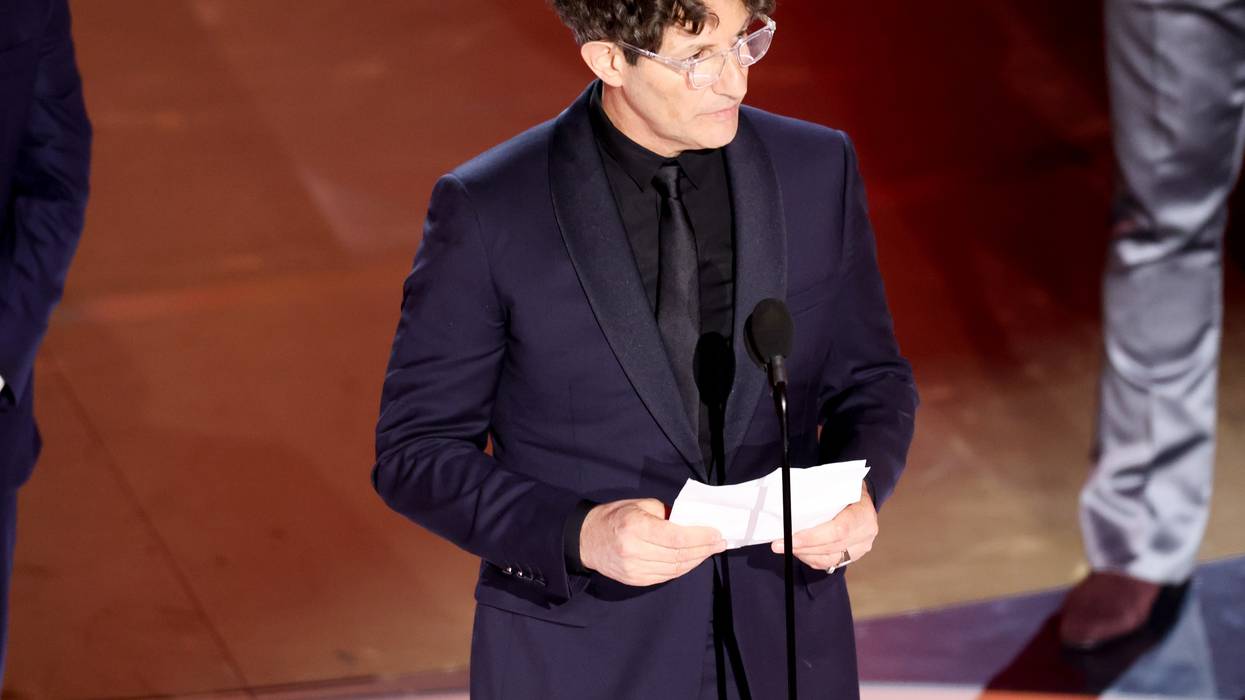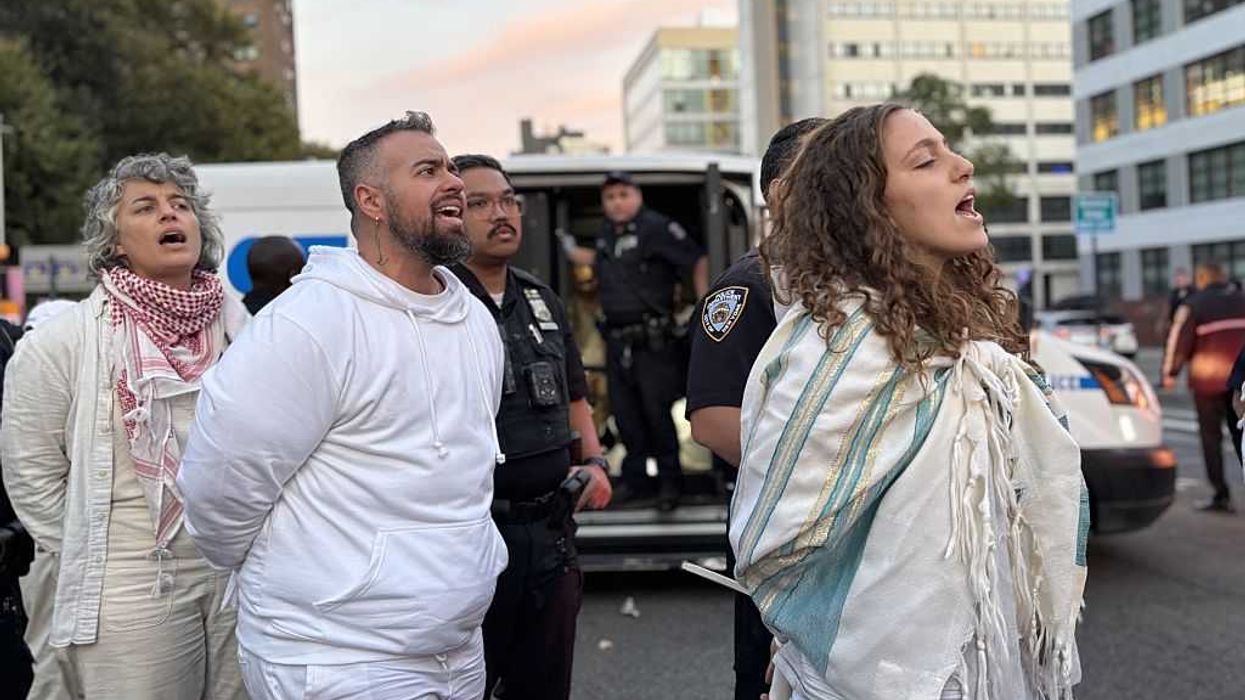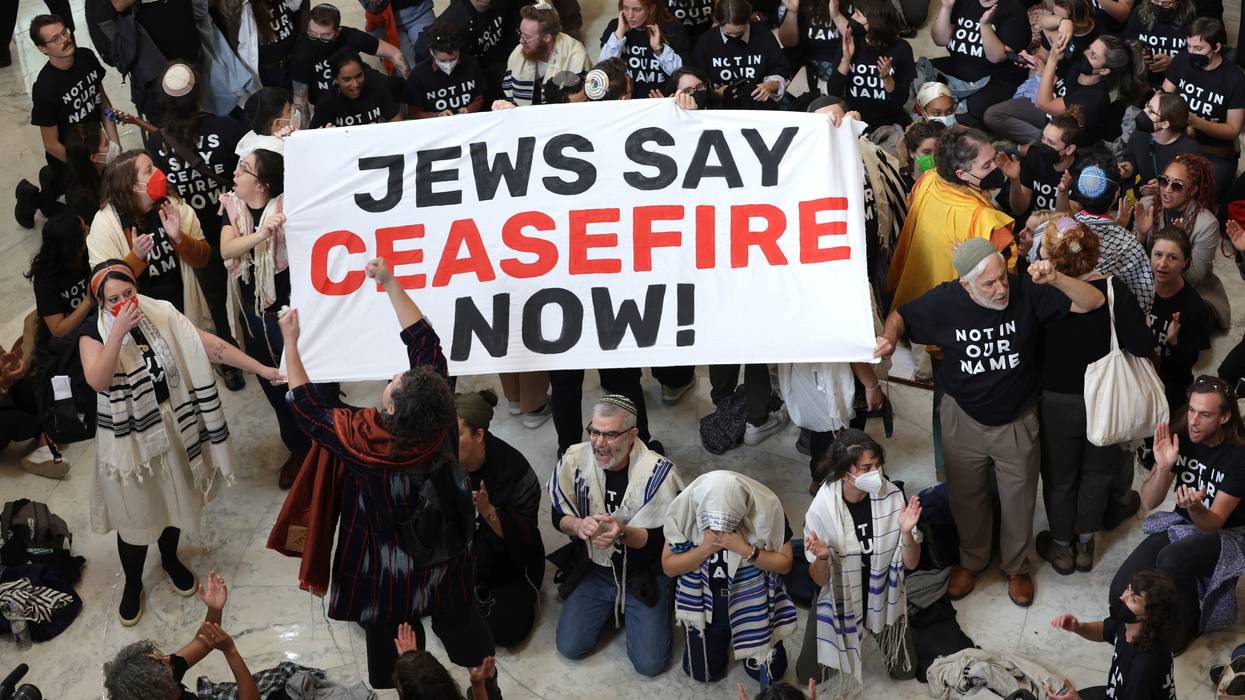Prominent Jewish Figures Call On World Leaders to 'Refuse' Complicity in Israeli Crimes in Gaza, West Bank
The United Nations and member states must "use relevant leverage, including targeted sanctions on governmental bodies and individuals responsible for violations of international law," reads a new letter.
With the Palestinian news agency in Gaza reporting that Israel has violated the 12-day-old ceasefire agreement with Hamas at least 80 times and killed at least 80 people in the exclave, more than 460 prominent Jewish artists, writers, rights advocates, and policymakers on Wednesday called on world leaders—including at the United Nations—to intensify the international pressure that helped push Israel to sign the fragile truce deal.
"It was international pressure that helped to secure this ceasefire, and it must be sustained to guarantee that it endures," reads a letter organized by Jews Demand Action. "The ceasefire must be the beginning, not the end. The risk of reverting to a political reality of indifference to occupation and permanent conflict is too great. This same pressure must be continued to deliver a new era of peace and justice for all—Palestinians and Israelis alike."
The letter was initiated by former Israeli Knesset Member Avrum Burg, former Israeli peace negotiator Daniel Levy, Israeli-American activist Libby Lenkinski, Belgian former Member of European Parliament Simone Susskind, US columnist and journalist Peter Beinart, and UK activist Em Hilton.
The signatories said that they "deplore the fact that Israeli leaders have repeatedly taken to the world stage to declare" that their bombardment of Gaza—which has killed more than 68,000 Palestinians and decimated nearly all housing units across the exclave along with hospitals, schools, and other civilian infrastructure—has been "committed in the name of the Jewish people."
"As Jews and as human beings, we declare: Not in our name," reads the letter, which was also signed by actor and writer Wallace Shawn, British filmmaker Jonathan Glazer, Israeli journalist Yuval Abraham, and actor Hannah Einbinder. "Not in the name of our heritage, our faith, or our moral tradition. The monumental scale of the killing and destruction, the forced displacement, the deliberate withholding of life-sustaining necessities, and the ongoing criminal actions in the West Bank must end and never be repeated."
"It is time to do everything possible to definitively end the Israeli government’s collective punishment of the Palestinians and to pursue peace for the sake of both peoples."
Among the letter's demands is one calling on UN Secretary-General António Guterres and other world leaders to "refute false accusations of antisemitism that abusively deploy our collective history to tarnish those with whom we stand together in the pursuit of peace and justice."
Calls to destroy Palestinian life "are not Jewish values nor are they guided by the lessons we draw from our peoples’ history," they wrote. "Instead we see in many of those standing up for Palestinian rights a reflection of the people who stood with Jews in our times of need. Our solidarity with Palestinians is not a betrayal of Judaism, then, but a fulfillment of it. When our sages taught that to destroy one life is to destroy an entire world, they did not carve exceptions for Palestinians."
The group called on other Jewish people to sign the letter.
The letter notes that the ceasefire signed on October 10 "makes no reference to the West Bank," where more than 3,200 Palestinians have been injured in attacks, including by Israeli settlers, this year. Israeli leaders have promoted the creation of the E1 settlement, which would cut off East Jerusalem from the rest of the illegally occupied territory and make it impossible for Palestinians to establish a state with the city as its capital.
Masked settlers in recent days attacked Palestinians civilians who were harvesting olives in the town of Turmus Ayya, with one clubbing a 55-year-old woman named Umm Saleh Abu Alia, who had to be hospitalized.
The letter was addressed to Guterres and other world leaders and representatives of UN member states as the International Court of Justice ruled that Israel must provide for the "basic needs" of Palestinians in Gaza and allow aid into the exclave. In 2024 the ICJ issued a nonbinding opinion saying the occupation was illegal—in keeping with long-established international law—and calling on settlers to leave the West Bank.
The signatories affirmed their "belief in the universality of justice and the fair and equal application of international law," writing: "We have not forgotten that so many of the laws, charters, and conventions established to safeguard and protect all human life were created in response to the Holocaust. Those safeguards have been relentlessly violated by Israel."
"Accountability for the Israeli leadership’s grievous violations of international law is necessary," they wrote. "It is time to do everything possible to definitively end the Israeli government’s collective punishment of the Palestinians and to pursue peace for the sake of both peoples."
The European Union's foreign ministers paused sanctions against Israel in response to the ceasefire agreement, a decision that was criticized by rights advocates this week.
"That is the last thing that we should be doing, because this is exactly the moment when you need to keep the pressure on. Because we all know that it’s certainly not a foregone conclusion that this plan will be implemented," Nathalie Tocci, a former adviser to two EU foreign policy officials, told The Guardian. “I fear that... European governments and institutions will be... reverting back to the sort of old, familiar patterns."
The letter sent on Wednesday called on the UN and member states to:
- Respect and abide by the decisions of the International Court of Justice, apply arrest warrants issued by the International Criminal Court, and resist efforts to unduly pressure and influence and prevent the workings of both courts;
- To refuse any complicity in continued crimes and violations of international law against Palestinians by Israel, including by ending the provision of arms and other relevant goods and services, and to use relevant leverage, including targeted sanctions on governmental bodies and individuals responsible for violations of international law; and
- To ensure that humanitarian assistance reaches all Palestinians in Gaza at the scale that is commensurate to their vital need, that the blockade is lifted and materials for reconstruction enter, and that there is a full Israeli military withdrawal.
Al Jazeera reported on Wednesday that Palestinians in Gaza "are still going hungry" despite the ceasefire. In August, the Integrated Food Security Phase Classification (IPC) declared famine in parts of the exclave, and more than 450 people have starved to death as a result of the near-total blockade Israel began imposing in October 2023.
There is now only one entry point open for aid trucks at the Karem Abu Salem crossing, reported Al Jazeera.
"When it comes to the northern part of Gaza, none of the crossings have been opened. For more than 50 days now, the Israeli military has imposed a complete blockade on these crossings, and none of the trucks are coming to this area," wrote Hani Mahmoud, a correspondent in Gaza City. "It continues to be very difficult for people here, particularly those returning to their homes in Gaza City and the northern areas. Apart from the fact that they are lacking access to water, there’s no access to proper food.
"Whatever is available is from business owners, the traders, who have been given permits from the Israeli military to get commercial items into the Gaza Strip," Mahmoud reported. "Despite the illusion that aid is 'pouring' into Gaza, the reality on the ground is different, and people are still going hungry, unable to access food and water."
Levy said that "Israel's actions against Palestinians are antithetical to the Jewish heritage we hold dear."
"We must end this shame and reclaim a better future for Jews and Palestinians alike," he said. "We are calling on world leaders to reject complicity in the status quo of occupation, apartheid, and Israel's genocidal doom-loop towards the Palestinians, and ensure respect for international law and an end to impunity. That is the only path towards hope and sustainable peace.”
The signatories added that despite the ceasefire, they "shall not rest" until the agreement "carries forward into an end of occupation and apartheid."
"We write in the hope that this initiative further emboldens a moment of renewed Jewish commitment to act with conscience and compassion," they wrote. "We vow to work urgently to achieve equality, justice, and freedom for Palestinians and Israelis."


